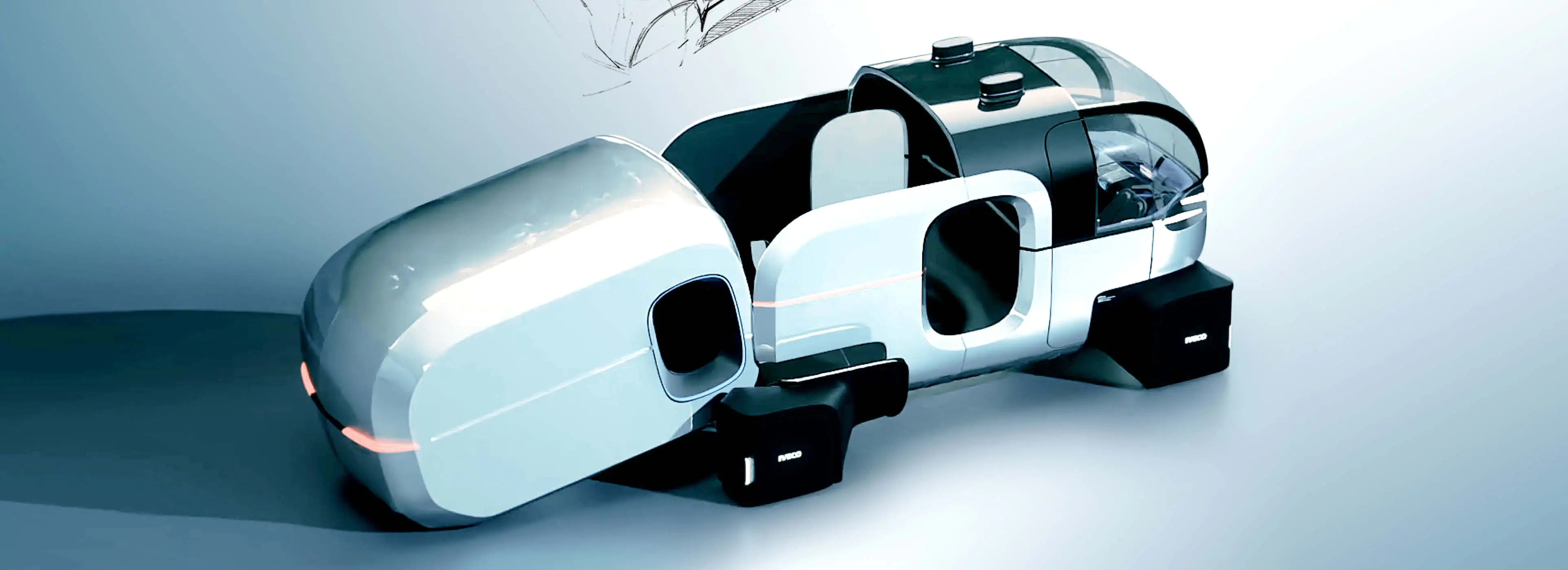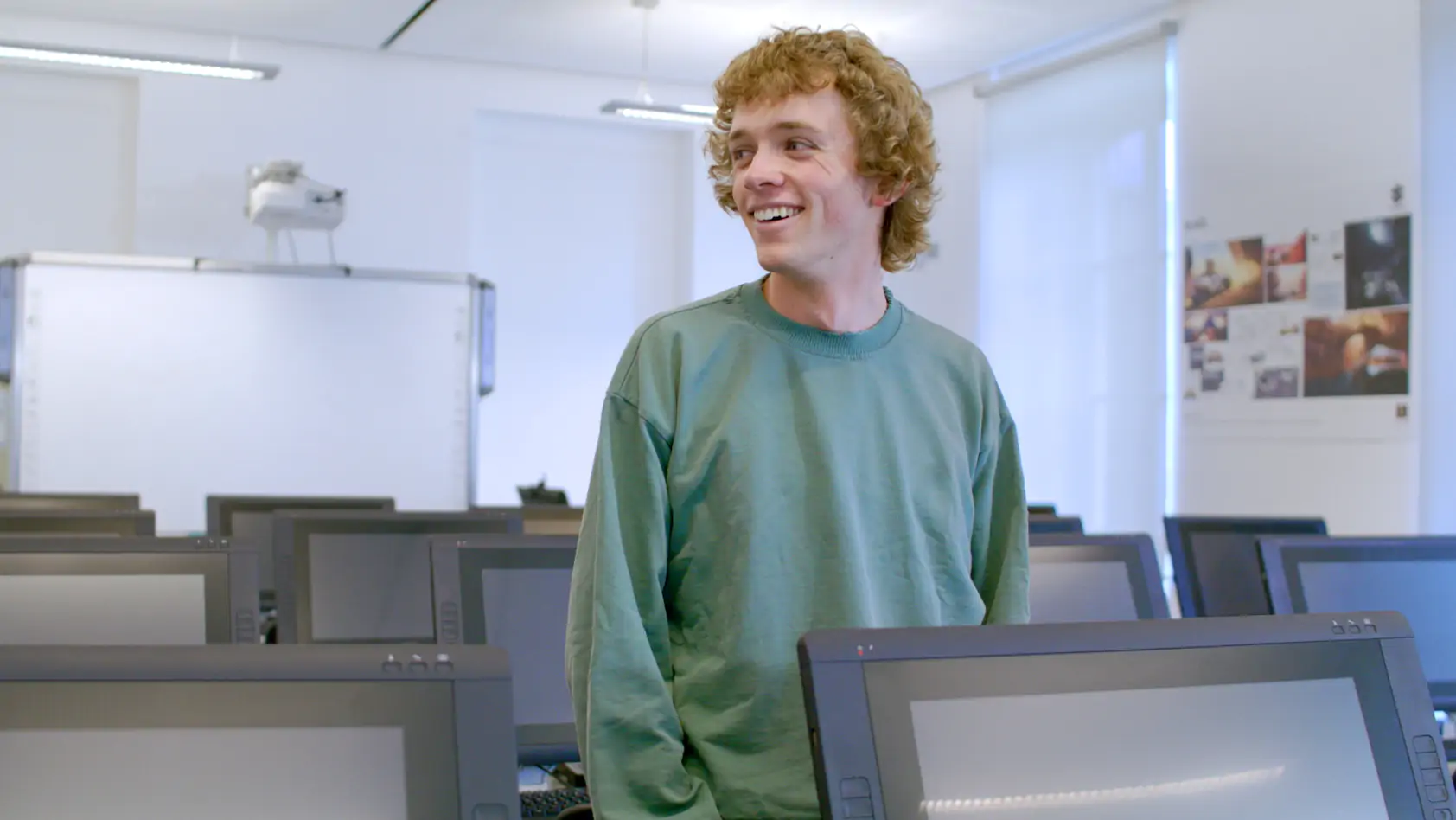Evento/Masterclass, Masterclass: Turin
Masterclass “The Future of Mobility with IAAD.” – 04.02.2025

Campus:
Start date:
Duration:

IAAD. Master in Mobility Design is a pioneering programme that blends the rich heritage of Italian design with the latest advancements in mobility, offering students a unique Italian touch in their education.
This interdisciplinary programme emphasizes aesthetics, culture, and poetry, and aims to prepare students to be leaders in the field of mobility design.

IAAD. Master in Mobility Design is a pioneering programme that blends the rich heritage of Italian design with the latest advancements in mobility, offering students a unique Italian touch in their education.
This interdisciplinary programme emphasizes aesthetics, culture, and poetry, and aims to prepare students to be leaders in the field of mobility design.
In collaboration with: Walter De Silva Partners
PRELIMINARY MODULE
Start date: November
Duration: 6 months
Language: English
Mode: full time in person at IAAD. Turin
Format: the Preliminary involves 7 to 9 lessons per week
MASTER MODULE
Start date: May
Duration: 10 months
Language: English
Mode: hybrid
Format: full time
Campus: Turin
FACULTY
Strategic Director: Luca Borgogno
Coordinator: Dario Olivero
Reference field
The mobility design field is constantly evolving and has an important economic impact worldwide.
The consideration for the environment and the growing request for personalized transportation offer new opportunities for mobility designers. In the field of mobility design there’s a growing concern for the environment. Automotive manufacturers are adopting more and more eco-friendly solutions like electric, hybrid and autonomous vehicles.
The objective is to reduce the environmental impact and promoting circular economy, from beginning to end of life of vehicles. These changes have created more job opportunities in the mobility design sector. Moreover, the market is influenced by trends and consumers’ lifestyle. Consumers want means of transportation to reflect their personality, their social status, and their aesthetic preferences. All this led to the creation of personalised vehicles both in their interior and exterior design, along with digital services and a focused user experience to satisfy an increasingly demanding customer base.
Why is IAAD. different from other Mobility Design Masters?
The best way to become a professional in Transportation Design is by being trained to learn from experts in the field. Thanks to this insight, IAAD. is the first Italian school of higher education specializing in Transportation Design.
More than 40 years of experience in the field of Transportation, the Institution’s research assets in the field of Mobility, and experience in the development of innovative mobility solutions in cooperation with leading partner companies all come together in the Master’s programme.
The design work carried out in collaboration between IAAD. and partner companies allows students to put into practice what they study in an environment very similar to what they will encounter in the professional field.
This system also allows students to simulate working conditions in a professional context: working with precise deadlines, correcting work in progress following customer feedback, working in teams and objectives. The Master is based on an idea of Walter De Silva, a master of Transportation Design who signed the evolution of the major brands of the VW group between 2007 and 2015.
Both Preliminary and Master’s programmes are intended for graduates in Transportation Design, Industrial Design, UX/UI Design, Generative Design, Architecture, Automotive Engineering and related subjects, and those candidates who matured significant professional experience in the transportation, urban planning, environmental and sustainable sciences fields.
In particular:
Design Graduates – students with a background in design, transportation design or related design fields can pursue the Master to specialize in designing mobility solutions.
CGI Artists – through the Master’s programme they can apply their skills in creating realistic 3D renderings, animations, and virtual simulations to the automotive field, for design, communication, and user testing phases.
Proficiency in CGI software is advantageous for digital prototyping, virtual design reviews, and human-machine interaction design. Including CGI art in the curriculum prepares students for the digital landscape in the mobility industry.
UX/UI Design graduates and professionals – thanks to the Master’s programme they will be able to apply their competences to create intuitive interfaces in mobility design. Proficiency in UI/UX tools and research methods is beneficial for creating user-friendly solutions. Including UI/UX design in the curriculum provides a holistic understanding of the design process for mobility solutions.
Preliminary
The 4-month Preliminary Module is aimed at imparting analytical, technical and design skills in Transportation Design.
Preliminary thematic areas
Master in Design for Mobility Solutions Shape the future of Smart Transportation
The 10-month long Master will provide a comprehensive and wide-ranging overview and experience of all the latest technical achievements, design trends and environmental aspects to help students fully comprehend and apply this knowledge in their professional approach.
Studying with professional designers and participating in projects with partner companies will stimulate students’ creativity and will give them a real-life insight and experience of the design process, as a useful basis for preparing to their professional careers.
The course will be delivered on site, full time with compulsory attendance from Monday to Saturday (lectures, workshops and individual study).
Master’s thematic areas
| PRELIMINARY MODULE | MASTER MODULE |
|---|---|
| History of vehicle design | Transportation Design |
| Design sketching | Design 3D |
| Digital Design | Human-Centered Design |
| Vehicle architecture | Mobility systems and urban planning |
| Motorbike ergonomics | Italian Design Heritage in Mobility: culture, poetry, and aesthetics |
| 3D Design | Emerging technologies in mobility |
| Motorbike Design | Sustainable Design |
| Transportation Design | Design Marketing and Communication |
| Presentation techniques | Financial strategies for mobility design |
| PRELIMINARY MODULE |
|---|
| History of vehicle design |
| Design sketching |
| Digital Design |
| Vehicle architecture |
| Motorbike ergonomics |
| 3D Design |
| Motorbike Design |
| Transportation Design |
| Presentation techniques |
| MASTER MODULE |
|---|
| Transportation Design |
| Design 3D |
| Human-Centered Design |
| Mobility systems and urban planning |
| Italian Design Heritage in Mobility: culture, poetry, and aesthetics |
| Emerging technologies in mobility |
| Sustainable Design |
| Design Marketing and Communication |
| Financial strategies for mobility design |
ADMISSION REQUIREMENTS AND PROCEDURES
Preliminary Module
Graduates in Industrial Design, Automotive Engineering and related subjects, and candidates who have gained significant professional experience in
the field of transportation can access the Preliminary Module.
Admission is subject to the assessment of the application, to be submitted with a letter of application, curriculum vitae and portfolio.
IAAD. reserves the right to request the candidates, if necessary, to sustain an interview in person or via videocall.
Master Module
Access to the Master Module from Preliminary is subject to passing the Preliminary Module.
For passing the module, students will have to successfully pass set exams and to develop a project-work to be presented in the final stage of the Preliminary Module.
Graduates in Transportation Design or who have gained significant experience in the Transportation Design or modelling can apply for direct admission
to the Master Module. Students will be required to provide proof and a self-certification for their hand and digital representation skills and for their alias and blender software skills.
Admission to the course is in both cases possible only with the approval of the Coordinator of the course based on the assessment of academic qualifications, professional resumé and portfolio.
APPLICATIONS
Applications must contain these documents:
The master Coordinator, assisted by an academic board, will evaluate the received candidacies.
IAAD. reserves the right to ask the candidate, when deemed necessary, an additional interview at the head office or via videocall.
The result of the application will be communicated by the Career Guidance Office to each candidate within 15 days from the reception of the required documents. Please note that selections will take place in chronological order of the date of receipt of applications, until all available places are filled.
Each edition of the course includes the development of a thesis project in collaboration with a partner company.
The design process is developed through a first briefing with the company and subsequent meetings of interim presentation and comparison with the designer supervisors of the partner company involved until the final discussion of the thesis.
This process allows students to develop design, creative, problem solving and team-work skills.
In order to offer its students the best opportunities on the market for creative professionals, IAAD. manages contacts between its students and the professional world, introducing its graduates to the top businesses in their fields. IAAD. has fostered relationships with companies that has resulted in a regularly updated database of businesses that continuously contact the Institute to find young, talented professionals to fill open positions.
The Master’s programme trains professionals capable of creating innovative mobility solutions, from vehicles and transportation systems to mobility services and experiences.
At the end of the course, graduates will be able to pursue careers as mobility designers, UX designers, transportation planners, data analysts, innovation managers, having become professionals well-prepared to contribute to the future of mobility by considering sustainability, user experience, cultural aspects, aesthetics, and innovative technologies in their designs, with a unique Italian design perspective that will set them apart in the industry.
At its sole discretion, the Commission will award scholarships after examination of applications received. The committee will assess the following documents:
Amongst granted scholarships, there will be one that will cover 100% of the tuition fee donated by architect Walter De Silva.
Candidates who have obtained a scholarship will receive the official communication before the beginning of the preliminary module. To maintain the scholarship to the Master module, the assignees’ students must have an exam grade average equal to or not less than 27/30 at the end of the Preliminary module.
No further scholarships will be awarded in the transition phase between the Preliminary module and the Master’s programme.


Other Master’s Courses
Book a meeting
Check out our calendar of upcoming Orientation events